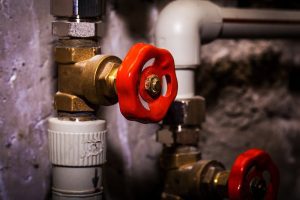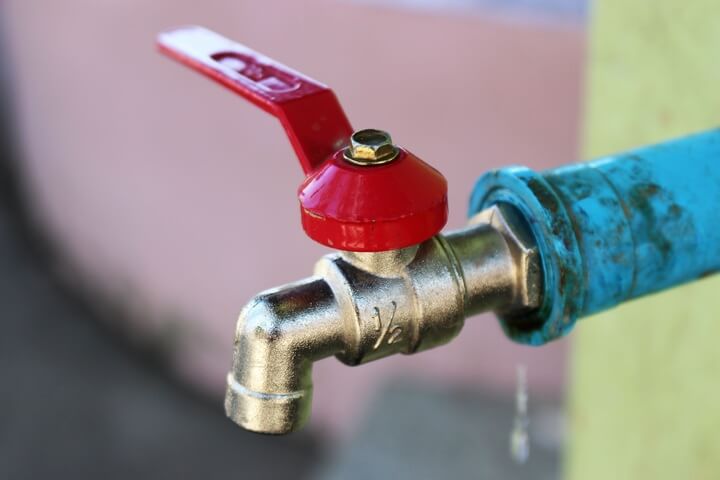10 Essential Plumbing Tips for Homeowners
As a homeowner, maintaining your plumbing system is crucial for preventing costly repairs and ensuring that your home runs smoothly. Plumbing issues can arise unexpectedly, but with a little knowledge and regular maintenance, you can avoid many common problems. In this article, we’ll share 10 essential plumbing tips every homeowner should know to keep their plumbing system in top shape.
1. Check for Leaks Regularly
Leaky pipes are one of the most common plumbing problems that can lead to significant water damage and high water bills. It’s essential to check for leaks regularly in areas such as under sinks, around toilets, and along exposed pipes. Even small leaks can waste a substantial amount of water over time, so addressing them promptly can save you money and prevent major issues.
How to Check for Leaks
Look for visible signs of water damage, such as wet spots or discoloration on walls, ceilings, or floors. You can also turn off all water sources in your home, check the water meter, and wait a few hours. If the meter reading changes, you likely have a hidden leak.
2. Know Where Your Main Water Shutoff Valve Is
In the event of a plumbing emergency, such as a burst pipe, knowing where your main water shutoff valve is located can save you from extensive water damage. This valve controls the water flow into your home, and turning it off immediately can stop the water supply and give you time to call a plumber.
How to Find the Shutoff Valve
The main shutoff valve is typically located near your water meter, in the basement, crawlspace, or outside your home. Make sure all household members know its location and how to turn it off.
3. Maintain Your Water Heater
Your water heater is one of the most important appliances in your home, and maintaining it can extend its lifespan and improve efficiency. Regular maintenance, such as flushing the tank and checking for leaks, is essential for preventing sediment buildup and ensuring your water heater operates smoothly.
How to Maintain Your Water Heater
Flushing your water heater once a year helps remove sediment buildup, which can reduce heating efficiency. Additionally, check the temperature setting and keep it between 120°F and 140°F to prevent scalding and reduce energy consumption.
4. Use Drain Strainers
Clogged drains are another common plumbing issue that can be easily avoided with simple prevention. One of the most effective ways to prevent clogs in your kitchen and bathroom drains is by using drain strainers. These small devices catch hair, food particles, and other debris before they can go down the drain and cause a blockage.
Types of Drain Strainers
There are many types of strainers available, including sink strainers, bathtub strainers, and shower drain covers. Choose the right type for each drain in your home and clean them regularly to ensure they continue to work effectively.
5. Don’t Pour Grease Down the Drain
Pouring grease or oil down your kitchen drain can lead to major clogs and even damage your plumbing pipes over time. Grease solidifies as it cools, creating a sticky residue that can easily catch other debris and form a significant blockage.
What to Do With Grease
Instead of pouring grease down the drain, dispose of it in a container and throw it in the trash. You can also save and reuse small amounts of cooking oil in your kitchen.
6. Insulate Pipes in Cold Weather
During the colder months, pipes are at risk of freezing, which can cause them to burst and lead to costly repairs. To prevent frozen pipes, it’s important to insulate pipes in areas that are vulnerable to freezing, such as basements, crawlspaces, and attics.
How to Insulate Pipes
Wrap exposed pipes with foam insulation or heating tape. Additionally, keep your thermostat set to a steady temperature, even when you’re away, to prevent sudden drops in temperature that could freeze your pipes.
7. Avoid Using Chemical Drain Cleaners
While chemical drain cleaners may seem like a quick fix for clogged drains, they can damage your pipes over time, especially if used frequently. These harsh chemicals can corrode metal pipes, weaken joints, and even harm your plumbing system.
Alternative Drain Cleaning Methods
Instead of using chemical drain cleaners, try using a plunger or a drain snake to clear blockages. You can also use a mixture of baking soda and vinegar followed by hot water to help break down minor clogs naturally.
8. Inspect and Maintain Your Sump Pump
If your home has a basement or is prone to flooding, it likely has a sump pump to prevent water from collecting in low areas. Regularly inspecting and maintaining your sump pump ensures it will work effectively when needed most.
How to Maintain Your Sump Pump
Test your sump pump at least once a year by pouring water into the pit to make sure it turns on and drains water. Clean the pump and the pit to prevent debris buildup, and replace the battery backup if your sump pump has one.
9. Check Your Water Pressure
High or low water pressure can be a sign of underlying plumbing issues, such as a pipe blockage, a leak, or a malfunctioning pressure regulator. Monitoring your home’s water pressure helps you detect problems early before they cause significant damage.

How to Test Water Pressure
You can buy a simple water pressure gauge from a hardware store to test the pressure in your home. The ideal water pressure is typically between 40 and 60 psi. If the pressure is outside this range, it’s best to consult a professional plumber.
10. Hire a Professional Plumber for Regular Inspections
While DIY plumbing fixes can save you money in the short term, some issues require the expertise of a licensed plumber. Scheduling regular plumbing inspections ensures that your system is functioning correctly and helps catch potential problems before they turn into expensive repairs.
Why Professional Inspections Matter
Professional plumbers have the knowledge and tools to identify hidden problems, such as slow leaks, corrosion, or pipe misalignments, that could lead to major issues down the road. Regular inspections also help maintain your home’s plumbing system, improving its longevity and performance.
Conclusion
By following these 10 essential plumbing tips, homeowners can prevent many common issues, save money on repairs, and ensure their plumbing system runs smoothly for years to come. From checking for leaks to regular maintenance, taking proactive steps can help you avoid costly problems and keep your home’s plumbing in top shape. Don’t forget to consult with a professional plumber if you encounter any major issues or need a system inspection. A little care today can prevent big problems tomorrow!

